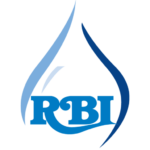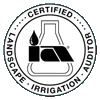Tips to Reduce Water Use
When temperatures rise and rain is scarce, peak water use in single-family homes typically occurs due to lawn and garden watering or when topping off a swimming pool. Experts estimate that 50 percent of the water we use outdoors goes to waste from evaporation or runoff due to overwatering. With the exception of extreme heat waves, peak use typically occurs on weekends as many people use their free time to tend to lawns and landscapes, do laundry, and wash cars.
Tips to Reduce Water Use:
Step on it: Grass doesn’t always need water just because it’s hot out. Step on the lawn, and if the grass springs back, then it doesn’t need water. An inexpensive soil moisture sensor can also show the amount of moisture at the plant’s roots and discourage overwatering.
RB Irrigation suggests: Make sure your irrigation system has a working rain sensor to prevent your system from going on during rain. Consider an investment in a Smart WiFi sprinkler controller that allow you to control your watering schedule from a mobile device.
Time it right: It’s best to water lawns and landscapes in the early morning and late evening because significant amounts of water can be lost due to evaporation at other times of day. Check with your local utility to find out what times are best for your region.
Tune up your system: Inspect irrigation systems and check for leaks and broken or clogged sprinkler heads. Fix sprinkler heads that are broken or spraying on the street or driveway.
Play zone defense: Assign areas of your landscape different zones depending on sun/shade exposure, soil and plant types, and type of sprinklers, then adjust your irrigation system or watering schedule based on those zones.
Give your hose a break: Sweep driveways, sidewalks, and steps rather than hosing them off. And don’t forget to check for leaks at your spigot connection and tighten as necessary.
Leave it long: Raise your lawn mower blade. Longer grass promotes deeper root growth, resulting in a more drought resistant lawn, reduced evaporation, and fewer weeds.
The above information was obtained from the Suffolk County Water Authority. For more info visit https://www.scwa.com/environment/water_sense/







